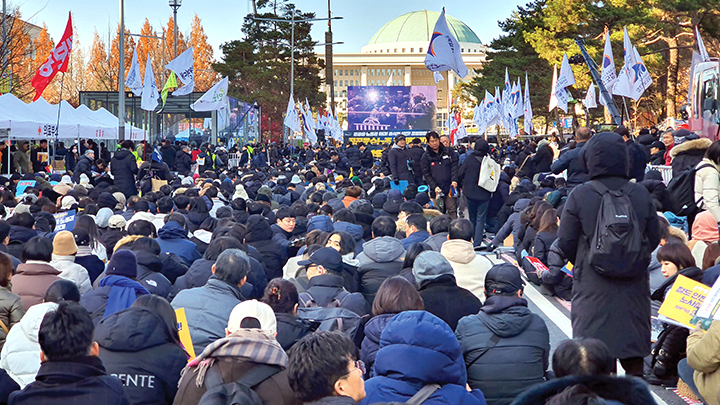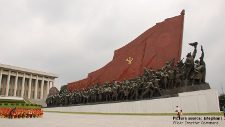Martial Law and Political Polarization: What’s in Store for South Korea?

Josephine Ørgaard Rasmussen and Mats Engman
Abstract
On December 3, South Korean President Yoon Suk-yeol declared emergency martial law, shocking both the country and the rest of the world. However, the martial law was only in place for a few hours before being rescinded by the National Assembly. Yoon’s decision to impose martial law sparked protests in both civic society and the opposition, with many urging that he and his supporters accept responsibility for their actions. Following weeks of uncertainty and a lack of consistent action to deal with the fallout from the martial law debacle, the National Assembly impeached Yoon on December 14, stripping him of presidential powers while the Constitutional Court conducts an investigation. The long-term implications, both domestic and external, will be significant, as South Korea continues to face uncertainty due to radical changes in leadership, prolonged political polarization, and an unclear foreign policy direction over the next 6-12 months.
Related Publications
-
ISDP Annual Report 2023
ISDP’s Annual Report for the year 2023. We look back on 2023, a year in which tensions and conflicts captured the strategic space in ISDP’s focus areas, making headlines around […]
-
South Korea’s Indo-Pacific Strategy, Atmanirbhar Bharat, and the IPEF: Convergence and Commonality
For some time now, the existing multilateral networks such as those of the United Nations (UN) system have been largely ineffective in providing good global governance and helping create resilience, […]
-
Kamala Harris on North Korea: Change or Continuation?
Despite many efforts and different strategies, both previous and current U.S. administrations have been unsuccessful in preventing the Democratic People’s Republic of Korea (DPRK) from developing its nuclear and missile […]
-
‘Strategic Talks’ – A Report by Stockholm Korea Center
In June, the ISDP Korea Center launched “Strategic Talks,” an online series focusing on developments on the Korean Peninsula and regional and international security. The inaugural session on June 4, […]
-
Russia-DPRK Partnership: Implications for the West
This issue brief examines the evolving relationship between the DPRK and Russia, particularly since Russia’s invasion of Ukraine in 2022. The partnership has deepened, with North Korea supporting Russia diplomatically […]




